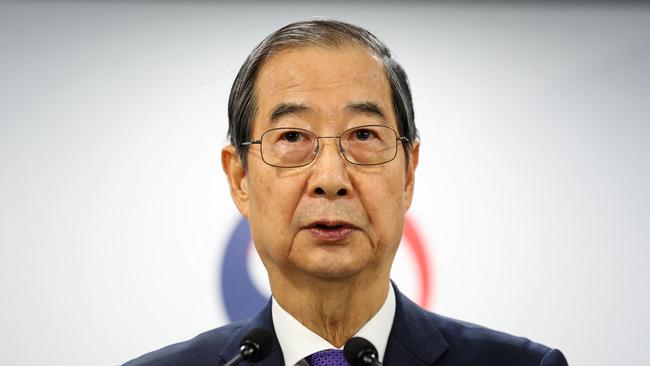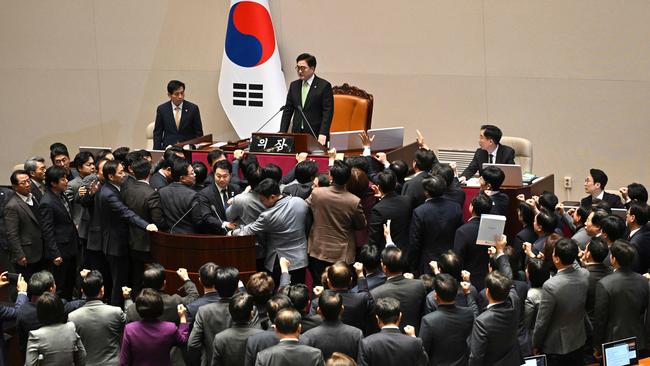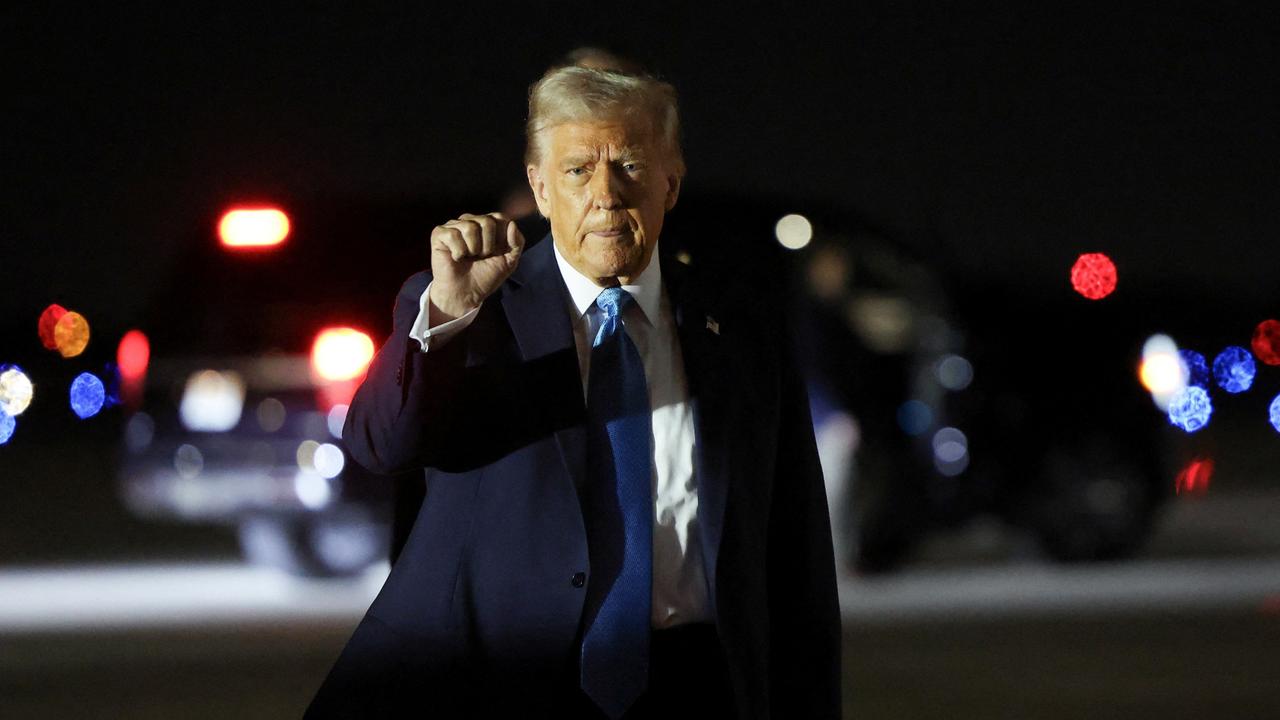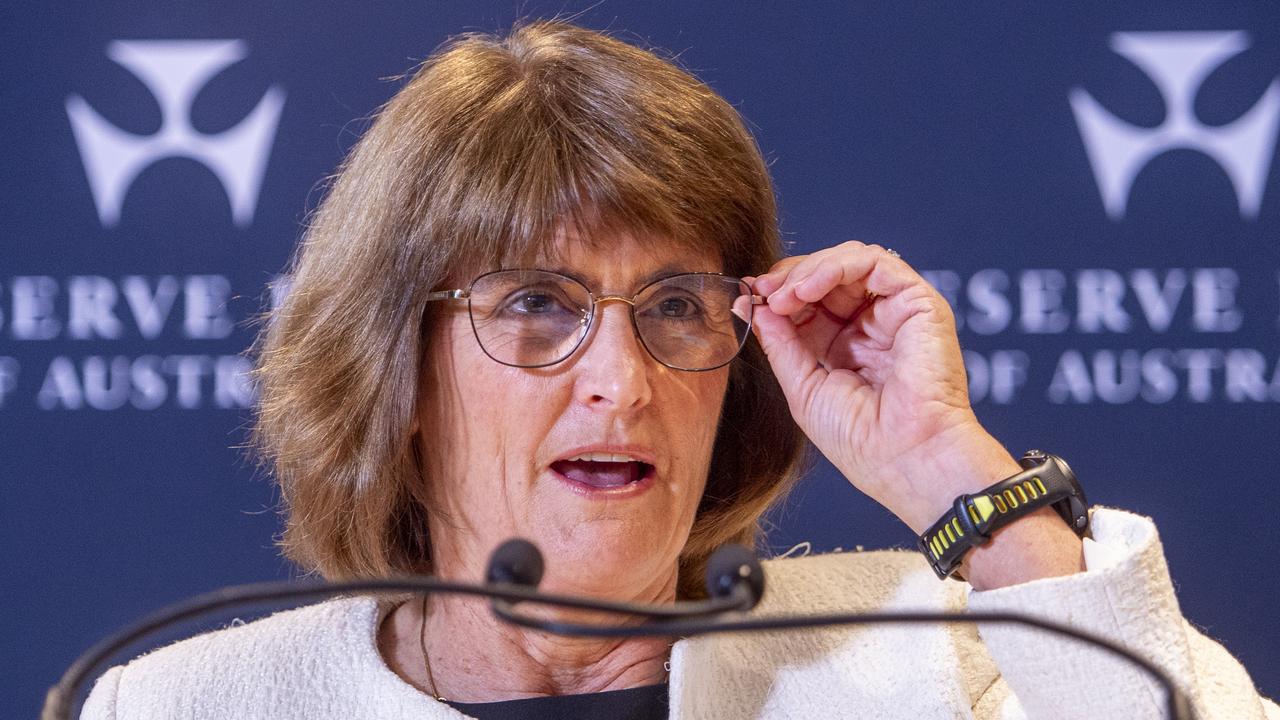South Korea impeaches acting president Han Duck-soo to prolong political upheaval
The deepening political turmoil in South Korea shows no sign of abating as interim leader Han Duck-soo succumbs to the same fate as his predecessor less than two weeks after assuming the job.

South Korea’s legislature voted to impeach acting President Han Duck-soo on Friday after he declined to make judicial appointments needed to advance the impeachment of his predecessor, extending the political upheaval that began with a short-lived martial law declaration earlier this month.
Han became the country’s interim leader less than two weeks ago after the National Assembly voted to impeach President Yoon Suk Yeol.
Han sought to reassure allies and stabilise state affairs, and his impeachment reflects failed bipartisan co-operation to resolve South Korea’s deepening political turmoil.
While a successful impeachment motion in South Korea immediately strips a president of powers, the country’s constitutional court must review and certify the vote before a leader can be removed from office.
The opposition Democratic Party, which maintains a majority in the legislature, is pushing to fill three vacancies on the nine-seat court.
Party officials sought to remove Han from office because he refused to fill the vacancies quickly and to approve legislation that would launch a special investigation into Yoon’s martial-law declaration.
The ruling People Power Party argued that an acting president doesn’t hold the power to appoint constitutional court justices.
The two major parties also disagreed on how many votes would be required to impeach Han, who had retained his previous post as South Korea’s prime minister.
After lawmakers gathered on Friday, National Assembly speaker Woo Won-shik said a simple majority would suffice, as opposed to the two-thirds vote that would be required to impeach a president.
Ruling-party lawmakers swarmed the speaker’s rostrum and, for roughly 20 minutes as votes were being cast, pumped their fists in the air and chanted “void ab initio,” declaring the vote to have no legal significance.
Some called for Woo to resign. Members of the ruling party walked out as the votes were tallied.
Lawmakers in the 300-seat legislature cast 192 votes in favour of impeachment, stripping Han of presidential powers. It is the first time South Korea has impeached an acting president.
Yoon declared martial law on December 3, saying it was necessary to protect South Korea from North Korean “communist forces”.
He had criticised the Democratic Party for impeaching his administration’s top officials and blocking legislation, saying the opposition was paralysing the state.
The martial-law bid lasted for six hours before it was rejected by lawmakers and rescinded by the president.
Choi Sang-mok, minister of economy and finance, is next in line to lead the government as acting president.
Choi has said that he voiced opposition regarding Yoon’s martial-law declaration and that he felt responsible for failing to stop the president.
With a line of Yoon’s appointees in position to step in as acting president, it could take court approval of his impeachment to break the current impasse.
If the impeachment is upheld by the court, the opposition leader Lee Jae-myung would be in position to win the presidency in a snap election.
If the three vacancies on the court’s nine-member bench aren’t filled, all six sitting justices would need to support the impeachment for it to succeed.
Han said on Thursday that he would refrain from appointing justices unless there were bipartisan consensus on the appointments. Two of the appointees were nominated by the opposition party and one by the ruling party, an arrangement the ruling party said it hadn’t agreed to.
The two parties have disagreed on whether Han has the authority to make the appointments as acting president.
After his comments, the opposition party proposed the impeachment motion against Han and voted on Friday.

While in office, Han attempted to provide reassurance to diplomatic partners – especially the US.
In a phone call with President Biden the day after Yoon’s impeachment, Han stressed that Washington and Seoul’s joint defense posture should remain strong to contend with North Korea’s nuclear threat and co-operation with Russia, according to Han’s office.
In a phone call with the commander of US Forces Korea, Han voiced concern that North Korea might capitalise on the South’s political turmoil, his office said.
Yoon’s attempt to institute martial law disrupted relations with the US, resulting in the postponement of diplomatic talks and discussions on nuclear operations, as well as the cancellation of a visit to South Korea by Defence Secretary Lloyd Austin.
Officials in Washington and Seoul agreed on Monday to resume postponed diplomatic and security events, South Korea’s Foreign Ministry said.
Han’s impeachment is likely to bring relations back to a standstill, said Kim Hyung-joon, a political-science professor at Pai Chai University in South Korea.
“When politics are this unstable, not much can be done from diplomatic visits,” he said. “It’s a pointless formality.”
Han is a career technocrat, a Harvard-educated former US ambassador with three decades of experience under five different South Korean presidents, both liberal and conservative. He was appointed prime minister by Yoon in 2022.
Han was questioned recently as part of an investigation into Yoon’s martial-law announcement. He was among cabinet members who had gathered before the late-night declaration. Han said he had opposed the decree.
Yoon’s declaration of martial law was the first in South Korea since the country’s democratisation in the 1980s. It prompted lawmakers to rush to the National Assembly to nullify the order ahead of a military lockdown.
Yoon is facing investigations into whether the declaration constituted insurrection, a charge that doesn’t carry presidential immunity.
South Koreans nationwide have joined protests calling for Yoon’s arrest, carrying whimsical flags and the kind of light sticks typically found at K-pop concerts.
Thousands gathered in downtown Seoul on Christmas Eve and marched to the constitutional court, demanding his permanent removal from office.
Yoon’s backers, meanwhile, placed head-high floral arrangements around the court compound to show their support.
The Wall Street Journal



